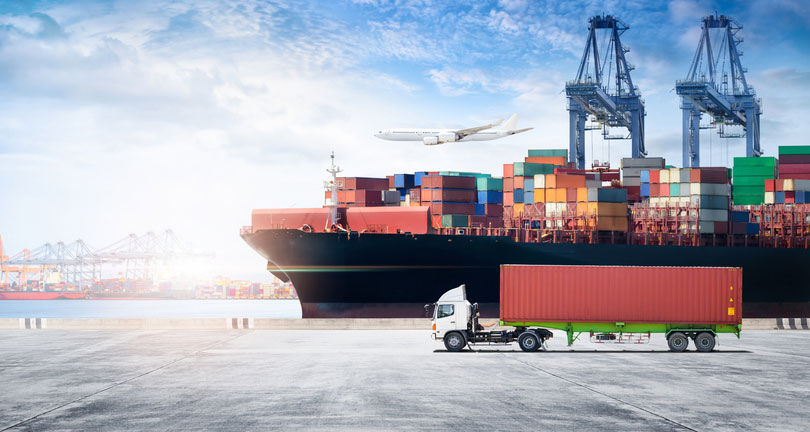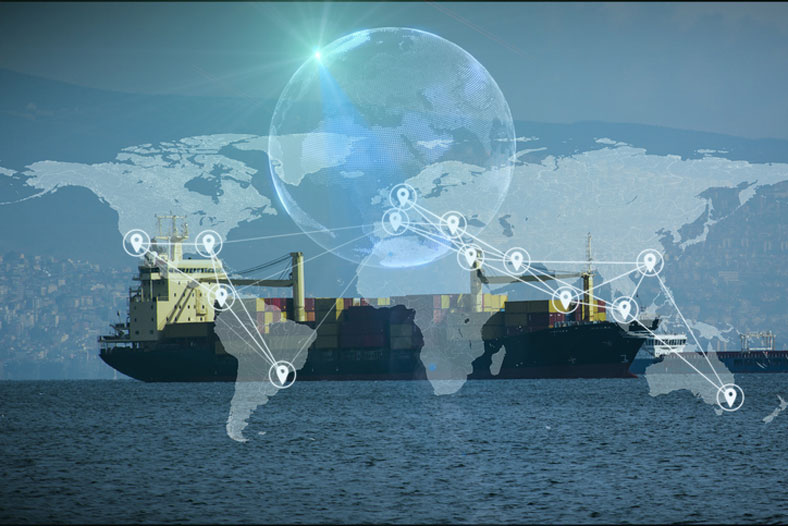Written by Scott Wilson

Today, most careers in logistics and supply chain management are in some way tied to the global supply chain. If your company doesn’t rely directly on parts or raw materials sourced from outside the country, then you certainly depend on tools or other products that do.
Keeping global connections open and the goods flowing is the business of global supply chain managers.
Featured Programs:Sponsored School(s)
Global supply chain management isn’t really a specific industry specialization unto itself. Instead, it’s a kind of specialization that is layered on top of all the other SCM areas of focus. It simply reflects the global nature of trade and commerce, and how transcontinental sourcing of materials and components is baked-in to almost every industry.
You’ll find global supply chain managers working for dedicated global logistics organizations and within Fortune 500 aerospace companies; you’ll also find them burrowed into mid-sized consumer electronics manufacturers and small mom-and-pop customer furniture shops.
Their objectives are the same as for any logistics or operations manager. But the complications that come from global supply chains are legion:
- Longer distances lead to greater timelines and higher risks in transit
- Customs considerations lead to additional paperwork and documentation
- Language barriers increase friction at every point in the process
- Multiple modes of transportation to coordinate
- Increased touch points create additional risks of pilferage and breakage
Each of those issues can expand out into a web of other potential pitfalls and problems. Any of them can bring a business to its knees.
And global supply chain managers must master them all.
Jobs in Global Supply Chain Management Are Everywhere

Jobs in global supply chain management aren’t just for Fortune 500 companies or specialized importers. Even tiny companies have developed a dependence on supply chains that stretch halfway around the world.
The job titles themselves don’t always reflect this focus.
No one puts up job ads for “water-based scuba divers.” Global is just part of the deal for most supply chain professionals.
That makes these positions tough to pin down other than on a case-by-case basis. The easy ones have titles like:
- Senior Project Manager - Global Spares Ops
- Global Chief Supply Chain Officer
- Director of International Shipping
But there are just as many that have equally global responsibilities, without that word in the title. This is where you have to get down to the gritty details to see if the job demands global expertise.
The actual day-to-day responsibilities vary along with the kind of position. Procurement managers coordinate with suppliers, contract managers sprint between legal and purchasing all day, warehouse managers decipher smudged stencils on packing crates.
The real difference in global supply chain management is that it all comes with an extra layer of complication. Those stenciled letters may be in Korean; the legal implications of a contract can span countries; coordinating may mean working at 2 a.m. to match a supplier’s time zone.
In general, positions with a focus on global supply chain management tend to be more senior roles.
These positions have salaries as varied as the industries and specializations they represent.
Something they all have in common, though, is open horizons and new opportunities. The landscape of international trade and supply chains is constantly shifting. There’s adventure that comes with these jobs. You never know quite what you’ll face when you show up in the morning. A typhoon could be shifting freight routes across the Pacific; political unrest in a trade partner nation could be threatening to shut down airport hubs.
Dealing with the unexpected makes jobs in global supply chain management more exciting and more challenging than any other. And for someone equipped with the right degree and the creativity to get the job done each day, that may also make them more satisfying than any other kind of logistics work.
A Degree in Global Supply Chain Management Is a Practical Necessity in the Field

That process starts with education.
Global supply chain management demands every ounce of expertise and knowledge you can muster. You won’t find that level of skill-building outside of a college classroom.
Although every modern degree in supply chain and logistics management comes with coursework in handling global networks, there are also plenty of programs that focus specifically on global supply chain management.
And because global logistics is such a focus today, you’ll find those programs at every level of education:
- Two-year Associate of Applied Science in Global Logistics and Supply Chain Management
- Four-year Bachelor of Business Administration with International Supply Chain Management, Transportation, and Logistics
- Two-to-three-year Master of Science in Global Supply Chain Management
- Three-year Master of Business Administration in International Trade and Supply Chain Management
- Short-term Certificate in Global Supply Chain Management
Many others in a similar vein are available. Increasing numbers are offered online as well as in-person, allowing you to get in your global supply chain studies from anywhere in the world.
Certificate programs are also available in more focused areas of global supply chains, like global supply chain analytics.
They cover all the core functional areas of supply chain and logistics with additional coursework that brings in the global angle:
- Global Trade Compliance
- Sustainability in Global Supply Chain Operations
- Principles of Strategic Global Sourcing
- Digital Technology in the Supply Chain
- Leadership and Ethics in Global Logistics Organizations
- International Contract Negotiation

More than any other type of supply chain management degree, these also lean heavily on the more general arts and sciences coursework baked into college studies. While all the specific logistics and transportation expertise is important, working on the global stage requires broader skills. You need empathy, cultural understanding, and communication abilities.
Those come through coursework in areas like:
- Language skills
- Social studies
- History
- Politics and International Relations
To really shine in global supply chain management, you have to put as much time into understanding who you are trading with as what you are trading.
Global logistics is also a field that has room for graduates at the doctoral level. There’s enough complexity that a PhD or DBA (Doctor of Business Administration) in Global Operations and Supply Chain Management can take three to five years to unravel it. Specialists at this level are either aiming for research and high-level consulting or senior positions in the industry.
Are There Any Professional Certifications in Global Supply Chain Management?

Professional certifications are a big deal in every aspect of supply chain management. They cover both supply chain management as a whole and specific areas of expertise, like supplier diversity or automation.
Through testing, additional training, and validation of experience on the job, they offer employers confirmation that you have real skill to offer.
Although there aren’t specific certifications in global supply chain management, any of the professional certs available in other areas of practice become even more valuable in the international context. It’s the major leagues, and companies are looking for big hitters. A certification gives them confidence that you have what it takes.







